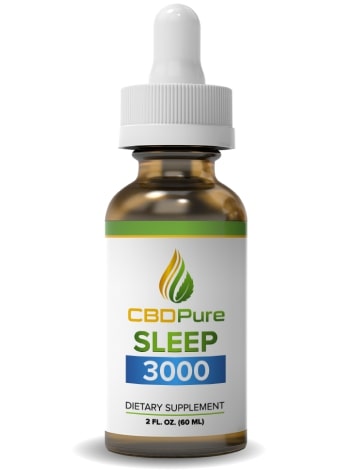Discover the benefits of CBD supplements and how they can promote optimal wellness. Learn more about the uses, effects, and potential side effects of CBD supplements in this comprehensive guide.
Table of Contents
In recent years, CBD supplements have gained widespread popularity for their potential health benefits. CBD, short for cannabidiol, is a naturally occurring compound found in the cannabis plant. Unlike its cousin, THC, CBD does not produce a high or intoxicating effects. Instead, CBD has been shown to have a range of potential therapeutic uses, including promoting relaxation, reducing anxiety, and easing pain.
In this guide, we’ll take a closer look at CBD supplements and their potential benefits for optimal wellness. We’ll explore the different forms of CBD products available, their uses and effects, and any potential side effects or risks. Whether you’re curious about CBD or looking to try it for yourself, this guide will provide you with the information you need to make an informed decision.
Understanding CBD Supplements
CBD supplements are products that contain CBD oil, which is extracted from the cannabis plant. CBD oil can be extracted from either hemp or marijuana plants, though hemp-derived CBD oil is more commonly used in supplements. CBD oil is then formulated into various products, such as CBD tinctures, CBD capsules, and CBD topicals.
How CBD Supplements Work
CBD supplements work by interacting with the body’s endocannabinoid system (ECS), a complex network of receptors and neurotransmitters that helps regulate many bodily functions. CBD is believed to help modulate the endocannabinoid system, leading to potential therapeutic effects on various health conditions.
The endocannabinoid system (ECS) comprises cannabinoid receptors, endocannabinoids produced by the body, and enzymes that break down these compounds. CBD interacts with ECS receptors, particularly CB1 and CB2 receptors, which are found throughout the body. This interaction helps regulate functions such as pain perception, inflammation, and mood.
The Benefits of CBD Supplements
1. Pain Management:
CBD has analgesic properties that may help alleviate chronic pain conditions such as arthritis, neuropathic pain, and migraines. Studies suggest that CBD interacts with receptors in the brain and immune system to reduce inflammation and pain perception.
2. Anxiety and Stress Relief:
CBD shows promise in reducing anxiety and stress levels by modulating neurotransmitter activity in the brain. It may help individuals with generalized anxiety disorder (GAD), social anxiety disorder, and post-traumatic stress disorder (PTSD) manage their symptoms.
3. Sleep Improvement:
Many people struggle with sleep disorders such as insomnia, and CBD supplements offer a potential solution. By promoting relaxation and reducing anxiety, CBD may improve sleep quality and duration.

4. Neuroprotection:
Research indicates that CBD possesses neuroprotective properties, which could benefit individuals with neurological disorders like epilepsy, multiple sclerosis (MS), and Parkinson’s disease. CBD’s anti-inflammatory and antioxidant effects may protect against neurodegeneration and promote brain health.
5. Skin Health:
CBD’s anti-inflammatory and antioxidant properties make it a promising ingredient in skincare products. It may help manage conditions like acne, eczema, and psoriasis by reducing inflammation and regulating sebum production.
Different Types of CBD Supplements
1. CBD Oil:
CBD oil is the most common form of CBD, typically derived from hemp plants. It’s consumed orally by placing drops under the tongue for sublingual absorption. CBD oil can also be added to food and beverages.
2. CBD Capsules:
CBD capsules contain CBD oil in a convenient pill form, making it easy to track dosage. Capsules are preferred by individuals who want a precise and discreet way to consume CBD.
3. CBD Topicals:
CBD-infused creams, lotions, and balms are applied directly to the skin, targeting localized pain and inflammation. Topical CBD products are popular for relieving muscle soreness, joint pain, and skin conditions.
4. CBD Edibles:
CBD-infused edibles come in various forms, including CBD gummies, chocolates, and beverages. They offer a tasty and convenient way to incorporate CBD into your daily routine.
Choosing the Right CBD Supplement
When choosing CBD supplements, it’s essential to choose high-quality products from reputable manufacturers. Look for products that undergo third-party testing for potency and purity, ensuring they contain the stated amount of CBD and are free from contaminants like pesticides and heavy metals. Additionally, opt for full-spectrum CBD or broad-spectrum CBD products, which contain a range of cannabinoids and terpenes for enhanced therapeutic effects.
Potential Side Effects and Risks
While CBD supplements are generally considered safe, they can cause some side effects in certain individuals. Common side effects of CBD products include:
- Dry mouth
- Drowsiness
- Changes in appetite and weight
- Diarrhea
CBD supplements can also interact with certain medications, so it’s important to speak with a healthcare professional before using CBD if you’re taking certain medications. Additionally, while CBD products do not produce a high or intoxicating effects, they may still contain trace amounts of THC, which could show up on a drug test.
FAQs About CBD Supplements
Q: Is CBD legal?
A: CBD derived from hemp is legal under federal law, as long as it contains no more than 0.3% THC. However, laws regarding CBD vary by state, so it’s important to check your state’s laws before purchasing or using CBD products.
Q: Can CBD supplements make you high?
A: No, CBD does not produce a high or intoxicating effects. THC is the compound responsible for the psychoactive effects of cannabis.
Q: Can you overdose on CBD
A: While it’s possible to take too much CBD, it’s generally considered safe. However, high doses of CBD may cause side effects such as drowsiness, diarrhea, and changes in appetite and weight.
Q: How should I take CBD supplements?
A: The best way to take CBD depends on your intended use and desired effects. CBD oil tinctures can be taken sublingually (under the tongue) for fast absorption, while CBD capsules and CBD edibles provide a slower release of CBD over time.
Conclusion
CBD supplements offer a natural and versatile approach to promoting overall wellness. From managing pain and anxiety to improving sleep and supporting skin health, CBD’s therapeutic potential is vast. By understanding how CBD interacts with the body’s endocannabinoid system and choosing high-quality products, individuals can harness the benefits of CBD for optimal health and well-being.



